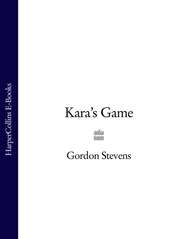По всем вопросам обращайтесь на: info@litportal.ru
(©) 2003-2024.
✖
Peace on Earth
Автор
Год написания книги
2018
Настройки чтения
Размер шрифта
Высота строк
Поля
Pasha Simenov.
The letter arrived at eleven.
Each morning Alexandra waited for it to come. Each morning after she had taken their son to school and settled their daughter in the flat, she waited for the sound of the postman on the landing outside. Each morning she heard him as he put his bag down, knowing that he was only regaining his breath, that he would pick up the bag and walk on.
She heard the noise on the stairs, the silence as the man paused outside and searched in his bag for the letter that was bound to come, then heard the next noise, the sound of the man lifting his load and continuing his climb to the floors above. The child was looking at her; she sat back at the table, trying to concentrate, disappointed that the letter summoning them to Kolpachny Lane had not come but relieved that they had not yet been rejected again.
The footsteps came down the stairs and past the flat, quicker, lighter, fading till she could no longer hear them. Alexandra smiled at her daughter and thought of her husband and son, heard the footsteps again, slower, more laboured, the sound of the postman climbing back up the stairs. The man stopping on the landing outside, the first corner of the envelope beneath the door. Thin, she thought, crossing the room, suddenly not knowing what she was doing, it was so thin, just as before. She knew what it meant, opening it, ignoring the time and date of the summons, realising that they had lost again, that they had lost for ever.
The words were a blur. She put the letter on the table and looked at her daughter, wishing suddenly that she and Yakov had not tried again, had never tried. Not for their sakes, but for their children’s. The girl was still playing. Alexandra picked up the summons again and saw the date and time of the appointment, realising it was for today and knowing that they had delayed the letter so that she and Yakov would miss the appointment, so that she and her husband would give them even more reason to refuse, them again. No time to contact him, she was thinking, no way she could contact him at the hotel in any case. There was just enough time, she was thinking, looking at the clock. If she hurried, if the trams weren’t delayed.
Five minutes later Alexandra left the flat, her daughter wrapped against the cold, and began the journey. The trams seemed even slower than usual.
Alexandra reached the building in Kolpachny Lane five minutes before the appointed time and was told to wait till after lunch. She sat in the waiting room and tried to stop her daughter crying; after seventy minutes she was ushered in and instructed to sit in the chair she had sat in last time and the time before, facing the official who had spoken to her the last time and the time before.
There were two stacks of files on the desk in front of him. He confirmed her name and selected a folder from those on his left, reading through it then checking the details against the information on the summons she had received that morning.
‘Why is your husband not with you?’ she knew he was going to ask, knew that it would be a trick, that they had already found out where her husband was, that the faceless men from Petrovka had been waiting for him as he had feared in his dreams.
‘I don’t know,’ she would lie, holding her child tight to her, ‘the summons arrived only this morning, he left before it came.’
‘And you don’t know where your husband went?’ There would be the first note of an interrogation in his voice.
Be brave, Alexandra Zubko, she would tell herself, do not let them frighten you. Remember that they have refused you twice, that they have already decided to refuse you a third time.
‘It doesn’t matter where my husband is,’ she would wish already that she had not answered the official in such a manner, would know it was too late, ‘the invitation is to me, I am the one you must tell, not my husband.’
The man began reading from the file, not bothering to look at her, reading the words he would forget the moment she left, the words she would remember for ever.
Fifteen minutes later Alexandra left the office on Kolpachny Lane and turned for home.
Not today, Yakov Zubko, she knew now why she had pleaded with her husband that morning, why she had been afraid of the sudden cold, of the winter it would bring, of what else it might visit upon them. For God’s sake not today.
It was twenty three minutes past one.
The American family lunched at twelve. Yakov Zubko watched them from the side of the foyer: the mother and father, the two children. They had been at the hotel eight days and he had seen them on the third. Each day after that he had made a point of meeting them, of helping them with their bags, each day after that he had smiled at them. On the fifth day one of them had smiled back. Then and only then had he risked checking their names on the hotel register, noting both their nationality, which he had already guessed, and their date of departure.
By the time they finished it was twenty-five minutes to two. Yakov Zubko saw them waiting for the official bus and remembered where all the tourists went on their last day in Moscow, began to plan his afternoon so that he could make his approach to them when they returned.
At fifteen minutes to two the unmarked Zhiguli left its position overlooking Dmitrov and returned to the militia headquarters on Petrovka. By two fifteen the next shift had taken over. Although there had been two visits to the black marketeer that morning, Iamskoy had instructed the militiaman to log only one: a further visit that afternoon was almost certain, two probable, three remote but possible, and a total of five visits on the second day of the surveillance was the point at which the team on duty could close their snare. Routine but important Iamskoy had decided. The following morning, he had therefore decided, he would arrest the suspect Simenov and those who brought their goods to him.
The flat was quiet. Alexandra looked around it, knowing what she was about to do, sensing that Yakov Zubko would understand. The furniture was sparse and functional; three of the chairs round the table had been bought over the years, but the fourth was a family heirloom, a wedding present from a beloved grandfather, now dead. Carefully, taking care not to damage it, she carried the antique down the stairs, perched it on top of her daughter’s push-chair, and tied it in place with a piece of string. Then she gathered the girl in her arms, and went to collect her son from school.
He was ten minutes late. When he came out she kissed him then set off, still carrying her daughter, along the route her husband had taken that morning. The walk took twenty minutes, Alexandra managed the child for the first ten before she became too heavy.
The men outside the shop saw her coming, nudging each other to look at her, scarcely bothering to hide their amusement. They were all young, dressed in fur coats and lounging against the estate cars parked outside the shop. One of them was helping another man, someone she took from his clothing to be a foreigner, to load a desk onto one of the cars. She had heard about the shop, that it was where the foreigners came to buy the equipment for their offices and the furniture for their homes, one of the places to which the authorities turned one of their many blind eyes. The foreigner turned to watch her, slightly fascinated, slightly embarrassed by the image of the woman pushing the pram with the chair on top, the two children walking bravely on either side of her. He had been a correspondent in Moscow for six months, and had learnt sufficient Russian in the time to understand what the young men in the fur coats were saying, enough to understand the sexual innuendo of their remarks. The driver he had hired to take the desk to his office was becoming impatient. He told the man to wait, watching the woman as she struggled to push the pram and its load through the door, no one moving to help her, and followed her inside, calculating how much the man in the shop would charge him for such a chair, was not surprised when the man gave the woman less than a thirtieth of what he estimated it was worth. Outside it was getting dark. He watched the way the woman folded the notes into her purse and tucked the purse carefully into the pocket of her coat, the way she lifted the girl at her side into the pram and pulled the boy close to her, the way she disappeared down the road, wanted to know what she was doing, why she was doing it, wanted to wish her luck, tell her that one day all would be well for her. Behind him he heard his driver start the engine of the estate car; he turned away from the woman and went back to his office.
The American family returned to the hotel at five, their arms laden with parcels wrapped in the colours of the Beryozka shops. Yakov Zubko watched them from the side of the foyer. The official guide was laughing and joking with them, for one moment he feared that she had already arranged the same thing he had been planning since he had first seen them, then she turned away to talk to another group. He crossed the foyer, arriving at the lift as they did, holding the doors open for them and helping the children with their parcels, then followed them in, pressing the button to close the doors before anyone could join them.
‘Good afternoon,’ his English was formal, almost mechanical, from the books he had studied since he had lost his job as an engineer. ‘I hope you enjoyed your stay in Moscow.’
The husband looked at him suspiciously. ‘Yes, thank you,’ he replied carefully.
The doors were shutting.
‘Everyone goes to the Beryozka shops on their last afternoon,’ Yakov Zubko explained, trying to relax them. He had only one chance, he thought. The doors were almost shut. ‘How old are the children?’
An elderly couple pushed forward and tried to step into the lift. The husband saw them and jerked the doors open for them. Yakov Zubko understood why he had done it, that the man knew why he had joined them, what he was going to ask them. One chance, he told himself, already slipping away.
The elderly man thanked the American and asked for the fourth floor. The Americans were in rooms 607 and 609, two floors above the others, Yakov Zubko remembered. The chance not quite gone. The lift stopped at the fourth floor and the other couple stepped out, the doors closing and the lift gathering speed again.
‘How old are the children?’ he asked again, looking at the denims they were wearing, not disguising the fact, letting the parents know there was a reason.
‘Twelve and ten,’ said the mother, not looking at him.
He nodded, looking back at the denims, hoping he was right but fearing he was wrong. ‘Mine are the same age.’ They all knew he was lying. ‘May I buy the children’s denims from you before you leave?’
The lift passed the fifth floor.
‘No.’ It was the third time the husband had rejected such a request that day. Be careful, his company had advised him when he informed them where he was taking a holiday, the Russians were always looking for people like him, especially in a profession like his, always seeking ways of entrapping them. ‘No,’ he said again emphatically, turning away.
Yakov Zubko sensed that the man would not change his mind and told himself there would be other families, other people who were not afraid, admitted to himself that it was already the beginning of winter, that there would be few other tourists before the weather set hard and the hotel found out about him.
The wife was still looking at him. ‘I understand,’ he was saying to her, the lift stopping and the husband and children getting out. ‘Thank you anyway.’ His finger was drawing the pattern on the wall, the woman still looking at him, at the pattern. He knew it would not work, that he should not do it, should not risk so much, the words coming anyway, telling her who he was, what he was. Telling her everything.
‘B’shavia Haba a b’Yerushalaim,’ he spoke slowly, quietly, committing himself.
She was looking at him, knowing what he was saying, what he was telling her, knowing who he was, what he was, what he was trying to do, her finger repeating the pattern on the wall, the six lines, two triangles, one inverted upon the other. The star of David. ‘B’shavia Haba a b’Yerushalaim,’ she replied.
‘Next year in Jerusalem,’ confirmed Yakov Zubko.
In the corridor the husband was waiting for his wife to join him and the children. ‘We leave tomorrow,’ said the woman, ‘could you collect our cases at ten forty-five.’
Alexandra finished the matvah at six and placed it in the oven, then she laid the table and bathed the children. When they were dry she took their best clothes from the wardrobe they all shared and dressed them, then she went to the bathroom along the landing and washed herself. It was six thirty. From the same cupboard she took her one good dress, the dress she had worn when she had married Yakov Zubko eleven years before, and put it on. The night outside was dark, the cold penetrating the glass of the windows; she pulled the curtains tighter and wondered what she would say, how she would tell her husband. At nine his brother Stanislav, Stanislav’s wife Mishka and their two children would join them, would share the food for which she had sold the chair that afternoon; before that, Alexandra had asked, before that, they had insisted, she would have one hour alone with Yakov Zubko and their family.
It was almost time. From her handbag she took the forms she had been given that afternoon by the man in the office on Kolpachny Lane and placed them on the table, laying the food around them. The matvah, there had been no time on that dread night for the women to prepare anything other than unleavened bread; the single roast egg for new life; the salted water for the tears of the slaves and the horse-radish for their bitterness; the extra plate and wine glass for the stranger who might come alone. The last thing she placed on the table, in a position where Yakov Zubko must see them first, were the haroseth sweets, then she called her son and daughter to her and stood facing the door, a child on either side and an arm round each.
The children were frightened, unsure what was happening; Alexandra herself had no tears left to cry.
She had waited another ten minutes when she heard him on the stairs: the same pace, the same slight delay as he searched in his pocket, the same scratching noise as he turned the key in the lock. She leant forward and lit the candle. He was a good man, she thought, a good husband and father; she did not yet know how she would tell him.
Yakov Zubko pushed the door open, carrying the small plastic bag of food he had brought from the hotel, and entered the room. He felt tired and cold, glad Alexandra would be there to welcome him, hoping that the children would not be asleep so that he could kiss them goodnight.
He saw the shadow on the wall, the flame of the candle on the table, the dishes around it, his family waiting for him, his wife in her wedding dress and the children in their best clothes. He did not understand, did not know what to think, looked again at his wife, at the table. Saw the matvah, the roasted egg, the bowl of salted water beside it, the place for the stranger. Saw one thing above all, the haroseth sweets.
The beginning of the festival, he was thinking, the commemoration of the night the Angel of Death passed over the land of Egypt, the beginning of the Feast of the Passover, the celebration of the delivery of his people.
The haroseth sweets, he could not help think, the symbol of the sweetness of freedom.









